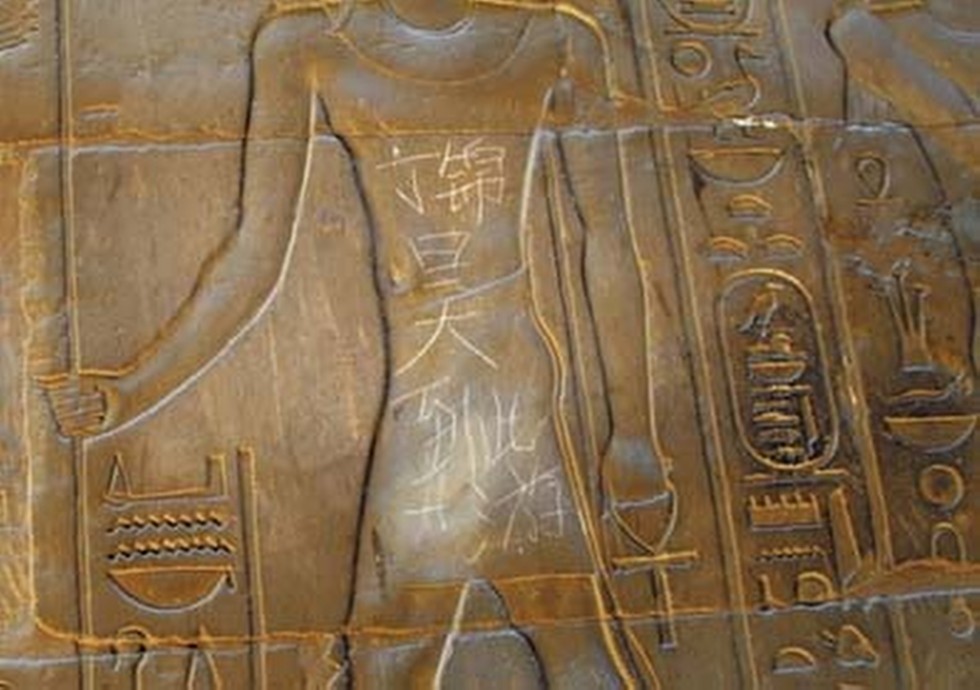- Joined
- Dec 21, 2012
- Messages
- 293
- Points
- 0
Records to be kept of badly-behaved Chinese tourists for up to two years
Tourism authorities will collate information about travelers uncivilised behaviour abroad
PUBLISHED : Tuesday, 07 April, 2015, 5:06pm
UPDATED : Tuesday, 07 April, 2015, 5:12pm
Reuters in Shanghai

Graffiti carved on the wall of an ancient temple in Luxor in Egypt by a tourist from China two years ago. The incident caused an outcry. Photo: SCMP Pictures
China will keep records of “uncivilised” behaviour by its tourists for up to two years, the country’s tourism agency said on Tuesday, to combat a spate of incidents abroad in recent years which it said reflected badly on the country’s image.
Bad behaviour includes violating local customs, destroying public infrastructure and historic sites, causing disturbances on public transport and participating in gambling and prostitution, the agency said.
“China’s image has already been tarnished,” the China National Tourism Administration said on its website.
The actions of badly-behaved tourists have caused many people to blush with shame and people who behaved badly overseas needed to learn a lesson, it added.
It did not specify the nature of any punishment.
Regulators will hunt out bad behaviour through tips from local tourism bureaus, media reports and from the general public.
The government’s State Administration of Tourism announced in January that it was creating a database of badly-behaved tourists that it will circulate to travel companies.
A Chinese student sparked an outcry two years ago in Egypt after scratching his name on the wall of an ancient temple in Luxor, while a mainland couple drew ire in Hong Kong for allowing their two-year-old child to defecate on a sidewalk.
Thai authorities issued thousands of Chinese-language etiquette manuals in February after Chinese tourists were caught drying underwear at a temple, kicking a bell at a sacred shrine and washing their feet in a public restroom.
Overseas travel has boomed in recent years among increasingly affluent Chinese, who have become the world’s biggest spenders on travel since 2012, according to the UN World Tourism Organisation.
